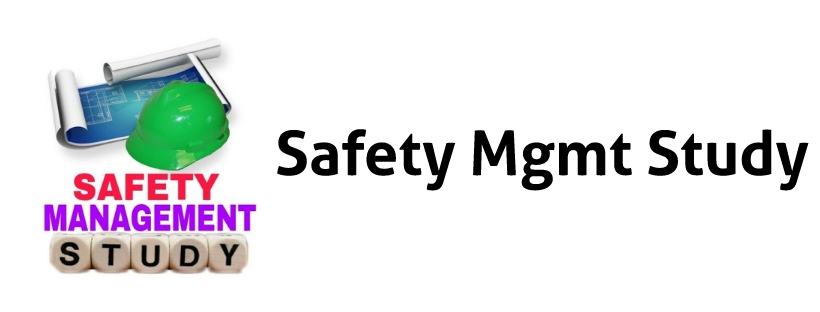How to Become a Safety Officer: A Simple Guide
A safety officer ensures that workplaces are safe and free from hazards. They play a critical role in preventing accidents, protecting workers, and ensuring compliance with safety laws. If you want to become a safety officer, this guide will help you understand the steps, courses, and certifications required. We’ve kept it simple and easy to follow for everyone.
 |
| How to Become a Safety Officer |
WhatsApp HSE Group
Join Now
Telegram HSE Group
Join Now
Introduction
Workplace safety is a critical aspect of every industry, and the role of a safety officer is vital in ensuring a secure and hazard-free environment. A career as a safety officer not only allows you to contribute to employee well-being but also offers excellent growth opportunities across sectors like construction, manufacturing, healthcare, and oil and gas.
Whether you’re a fresher, a non-diploma holder, or a professional looking to advance your career, this guide provides a clear roadmap on how to become a safety officer. From foundational diploma courses to globally recognized certifications like NEBOSH, IOSH, and OSHA, we’ll cover everything you need to know about qualifications, course fees, salary expectations, and career scope.
Let’s dive into the steps and certifications that will help you build a successful career as a safety officer.
Who Can Become a Safety Officer?
Anyone interested in safety and workplace health can become a safety officer.
- Freshers: If you are just starting, you can take basic safety courses.
- Non-Diploma Holders: Short-term certifications can help you begin your career.
- Professionals: Advanced diplomas and international certifications can boost your career.
Steps to Become a Safety Officer
1. Basic Education
- Minimum Requirement: You need to complete high school (10th or 12th).
- Preferred Background: A degree or diploma in engineering, science, or health-related fields is an advantage, but not mandatory.
2. Choose the Right Course
There are many safety officer courses for beginners and experienced professionals. These courses teach you about workplace safety, risk management, and accident prevention.
3. Get Certified
Certifications are essential to become a qualified safety officer. Both diploma courses and international certifications are available.
Safety Officer Courses for Beginners
1. Certificate in Occupational Health and Safety
- Duration: 3–6 months.
- Fees: ₹25,000–₹60,000 ($300–$800).
- Scope: Teaches basic safety principles and how to identify workplace hazards.
2. Diploma in Fire and Safety Management
- Duration: 6 months–1 year.
- Fees: ₹60,000–₹1,20,000 ($800–$1,500).
- Scope: Focuses on fire safety, emergency planning, and controlling fire risks.
3. Construction Safety Certification
- Duration: 1–3 months.
- Fees: ₹40,000–₹80,000 ($500–$1,000).
- Scope: Focuses on safety protocols for construction sites.
Advanced Courses for Professionals
1. Advanced Diploma in Industrial Safety (ADIS)
- Duration: 1 year.
- Fees: ₹80,000–₹1,60,000 ($1,000–$2,000).
- Scope: Covers industrial safety, risk management, and legal compliance.
2. Post Graduate Diploma in Occupational Health and Safety
- Duration: 1 year.
- Fees: ₹1,20,000–₹2,40,000 ($1,500–$3,000).
- Scope: Provides advanced knowledge in occupational safety and health.
3. Diploma in Environmental Health and Safety (EHS)
- Duration: 1 year.
- Fees: ₹80,000–₹1,60,000 ($1,000–$2,000).
- Scope: Focuses on environmental safety, waste management, and sustainability.
International Certifications for All Levels
1. NEBOSH (National Examination Board in Occupational Safety and Health)
- Duration: 3–6 months.
- Fees: ₹65,000–₹1,50,000 ($800–$1,800).
- Scope: Globally recognized certification for health and safety professionals.
Know More About Nebosh Courses
2. IOSH (Institution of Occupational Safety and Health)
- Duration: 2–3 weeks.
- Fees: ₹30,000–₹50,000 ($400–$600).
- Scope: Suitable for beginners and managers to improve workplace safety.
3. OSHA (Occupational Safety and Health Administration)
- Duration: 1–3 months.
- Fees: ₹40,000–₹80,000 ($500–$1,000).
- Scope: Popular in industries like construction and manufacturing.
4. ISO 45001 Lead Auditor Certification
- Duration: 5 days.
- Fees: ₹40,000–₹80,000 ($500–$1,000).
- Scope: Advanced training in safety management systems auditing.
5. First Aid and CPR Certification
- Duration: A few days.
- Fees: ₹4,000–₹16,000 ($50–$200).
- Scope: Teaches essential life-saving skills.
What Does a Safety Officer Do?
-
Create Safety Policies
- Develop safety rules and procedures for the workplace.
-
Identify Hazards
- Inspect workplaces to find potential dangers.
-
Train Employees
- Teach workers about safety practices and emergency responses.
-
Investigate Accidents
- Analyze accidents to find causes and prevent them in the future.
-
Ensure Compliance
- Make sure the workplace follows safety laws and standards.
How Much Does a Safety Officer Earn?
The salary of a safety officer depends on experience, location, and qualifications:
- Entry-Level: ₹2,50,000–₹4,00,000 per year ($3,000–$5,000).
- Mid-Level: ₹5,00,000–₹8,00,000 per year ($6,000–$10,000).
- Senior-Level: ₹10,00,000–₹20,00,000 per year ($12,000–$25,000).
Scope of a Career as a Safety Officer
Safety officers are in high demand across various industries, including:
- Construction
- Manufacturing
- Oil and Gas
- Healthcare
- Logistics and Warehousing
This profession offers opportunities to work in India and abroad, especially in countries with strict safety laws like the UAE, UK, and USA.
Frequently Asked Questions (FAQs)
1. Can freshers become safety officers?
Yes, freshers can start with basic certifications like IOSH or a Certificate in Occupational Health and Safety.
2. Is a degree mandatory to become a safety officer?
No, diploma courses and certifications are enough for many entry-level roles.
3. Which certification is best for beginners?
IOSH and OSHA are excellent options for those starting their careers.
4. How long does it take to become a safety officer?
It can take 3 months to 1 year, depending on the course or certification.
5. Are online courses available?
Yes, many certifications like NEBOSH and IOSH offer online training options.
Conclusion
Becoming a safety officer is a rewarding career that combines technical knowledge with a passion for workplace safety. Whether you are a fresher, a non-diploma holder, or an experienced professional, there are courses and certifications to suit your needs. With growing demand across industries, safety officers enjoy excellent career opportunities both locally and internationally.
Start your journey today and take the first step toward creating safer workplaces worldwide!



.jpg)









.png)
.png)


0 Comments